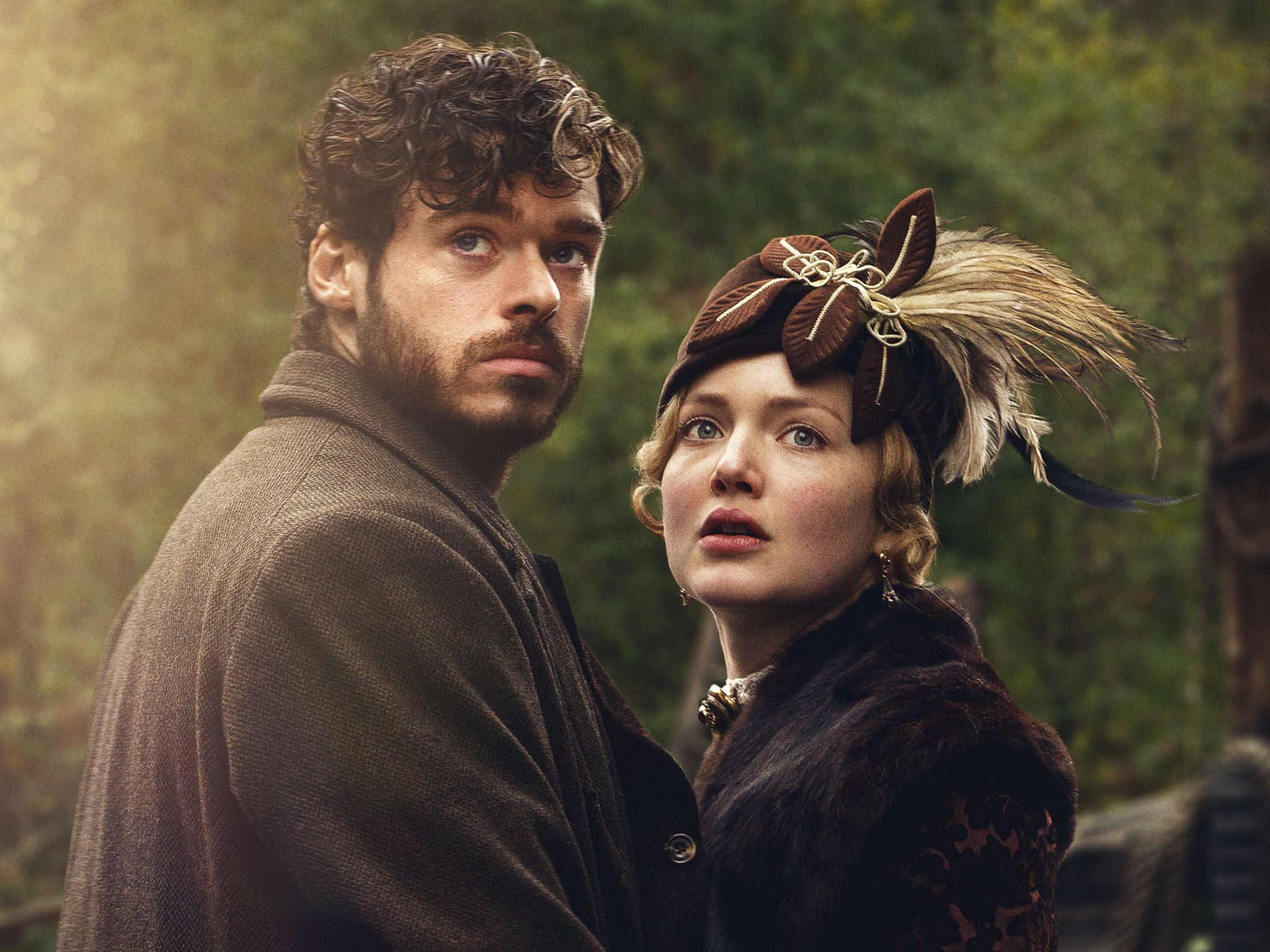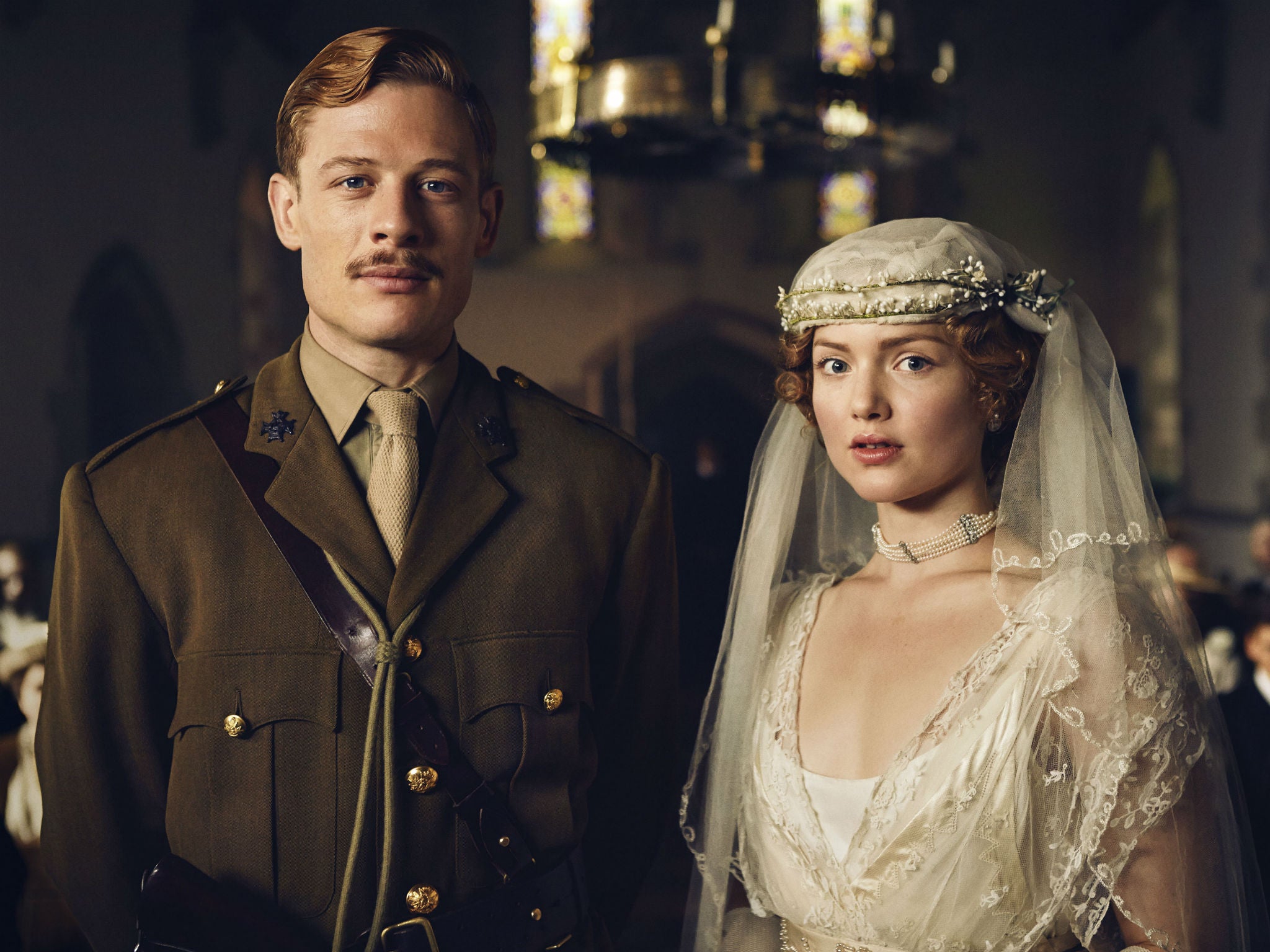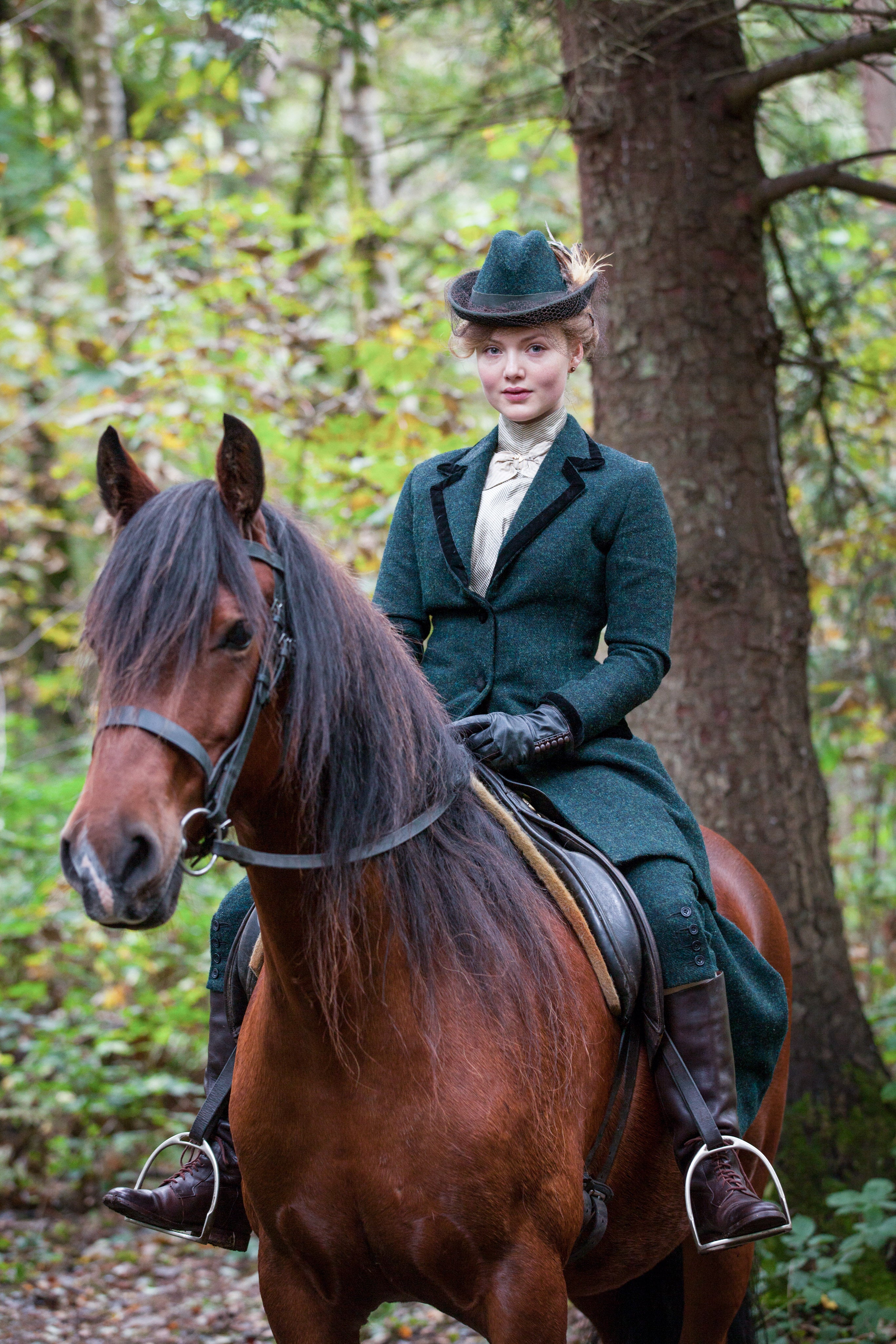BBC's adaption of Lady Chatterley's Lover says more about Britain than about DH Lawrence
Forget smut that was for decades deemed unsuitable for the servants – a new BBC adaptation sees DH Lawrence’s original message of lives blighted by war writ large. But the sex has its own story to tell, too

Your support helps us to tell the story
From reproductive rights to climate change to Big Tech, The Independent is on the ground when the story is developing. Whether it's investigating the financials of Elon Musk's pro-Trump PAC or producing our latest documentary, 'The A Word', which shines a light on the American women fighting for reproductive rights, we know how important it is to parse out the facts from the messaging.
At such a critical moment in US history, we need reporters on the ground. Your donation allows us to keep sending journalists to speak to both sides of the story.
The Independent is trusted by Americans across the entire political spectrum. And unlike many other quality news outlets, we choose not to lock Americans out of our reporting and analysis with paywalls. We believe quality journalism should be available to everyone, paid for by those who can afford it.
Your support makes all the difference."Ours is essentially a tragic age, so we refuse to take it tragically. The cataclysm has happened, we are among the ruins, we start to build up new little habitats, to have new little hopes." So begins one of the greatest novels to rise from the ashes of the First World War. That, even in 2015, too few people see Lady Chatterley's Lover in such a light says more Britain than about DH Lawrence.
Next month, the BBC will screen the latest among several adaptations of the novel. The self-exiled author had wrestled with two alternative versions before completing the final Lady Chatterley in 1928. Both Ken Russell, in his 1993 mini-series, and Pascale Ferran, in her 2006 film, made use of earlier drafts.
After its clearance on an obscenity charge that Penguin Books had invited in 1960, the book began its misleading afterlife as a Sixties icon of sexual liberation. Now, 55 years after the Old Bailey jury closed an era by scorning a dinosaur prosecutor (Mervyn Griffith-Jones) who asked “Is it a book that you would even wish your wife or your servants to read?”, no one can claim unfamiliarity with Lawrence’s prophetic – as much as erotic – testament.

Yet when Jed Mercurio, writer-director of the new drama, insists on making the disabled Clifford Chatterley a tragically complex figure and rightly points to the plight of a generation “completely destroyed by the war”, some lazy pundits wonder where all the obligatory bonking and fruity dialogue has gone. Bert Lawrence might have cursed into his beard. He would not have been at all surprised.
As they punctuate the plot, Connie Chatterley’s woodland trysts with the gamekeeper Mellors seek to transform those frail “little hopes” into a post-war gospel of salvation through sexuality. Inevitably, the couple fail. Industry, repression, moralism, materialism, mind-body dualism: for Lawrence, the catastrophe of 1914-1918 had gathered every toxic current of his age into a deluge of violence that ruined a continent. Tragically, in his view, the mines and machines soon started up again. Escape into passion proved a delusion.
At a pivotal moment, sirens for the early shift at the local pit drown out cries of ecstasy. One paragraph ends with Connie “carried away with the last, blind flush of extremity”. The next begins: “He heard the distant hooters of Stacks Gate for seven o’clock. It was Monday morning.” Any take on Lady Chatterley that gives us the orgasm without the winding-gear will betray the book.

From his comments, doctor-turned-author Jed Mercurio seems to have felt the true pulse of the prose. Lawrence loved to see false facades stripped away. Now it’s surely time for the patina that obscures his novel to come off. The creepy cultists of the Fifties and Sixties slathered on one layer of hero-worship; then the academic Lawrence-loathers of the Seventies, for whom confused, enraged Bert embodied every evil of patriarchy, added another.
And never forget that, 100 years ago, Metropolitan magistrates ordered the burning of The Rainbow – because it depicted a sexual relationship between two women. In the midst of a war that had turned his nightmares to reality, that blow broke Lawrence’s heart. He retreated to Cornwall and, when he could, fled England for good. Lady Chatterley voices all his bitter fury, along with a soaring tenderness about his “landscape of the heart” that makes this archetypal dirty book one of the most lyrical of tributes to the East Midlands of his youth.
All in all, we still owe Bert an apology. True, Mellors’s phallic mysteries have their comic side. These days, his bedtime sermonising will arouse more giggles than flushes: “I believe if men could fuck with warm hearts, and the women take it warm-heartedly, everything would come all right. It’s all this cold-hearted fucking that is death and idiocy.”
Then again, in the era of 24/7 cyber-porn and take-away online dates, does Connie Chatterley’s bit of philosophical rough really sound so risible?
Join our commenting forum
Join thought-provoking conversations, follow other Independent readers and see their replies
Comments